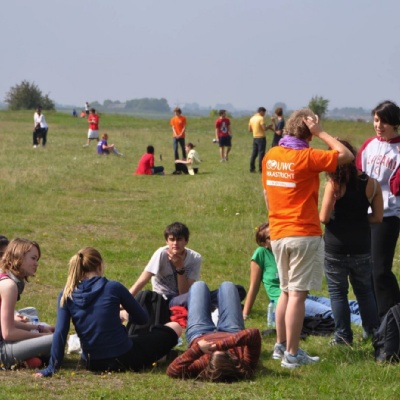UWC Maastricht extends the reach of their refugee program

As the worldwide refugee crisis keeps demanding more sustainable solutions, UWC Maastricht is increasing the efforts by extending their refugee program beyond their residential program. This means that two refugee students, one from Afghanistan and one from Iraq, will be able to do their IB Diploma at the school starting this year. They will attend the school as day students and continue to live at the local refugee center in Maastricht where they are based now. Peter Howe, Head of UWC Maastricht, tells us more about the initiative:
"The refugee crisis is impacting every city in Europe to some extent and Maastricht is no different. Our students have enjoyed very meaningful service work at the asylum centre (as have some of our day parents as well). I have also met with the mayor of Maastricht and university officials at Maastricht University to discuss ways in which we can respond collectively to support refugee students in the city.
One of the big challenges for the refugees is to receive residency status, as those in the Maastricht centre can be relocated anywhere in the Netherlands and, therefore, our 'investment' in their education may go for nothing if they cannot be guaranteed residency in Maastricht for the two years of the program. Thankfully, two refugee students with whom our students have been working with have received this status and, thus, are eligible to attend UWC Maastricht.
We have received positive references from their current schools and I had the pleasure of interviewing them to assess their potential to benefit from our program. As they are resident in Maastricht we are eligible to receive the government stipend for education to put towards the cost of their schooling. Through our Division Council in which parents, staff and students are represented, we also have support for waiving the day fees in order to support their attendance.
Thus, we will pilot our day student refugee program this academic year with the two students. Should it prove successful, we will look to continue and potentially expand this program moving forward. In order to ensure the students have the best possible start, they have joined our 'summer school' English Language Learning (ELL) program with our National Committee nominated students who require intensive ELL support two weeks prior to the arrival of the other residential students. We are very optimistic for the program's success!"
